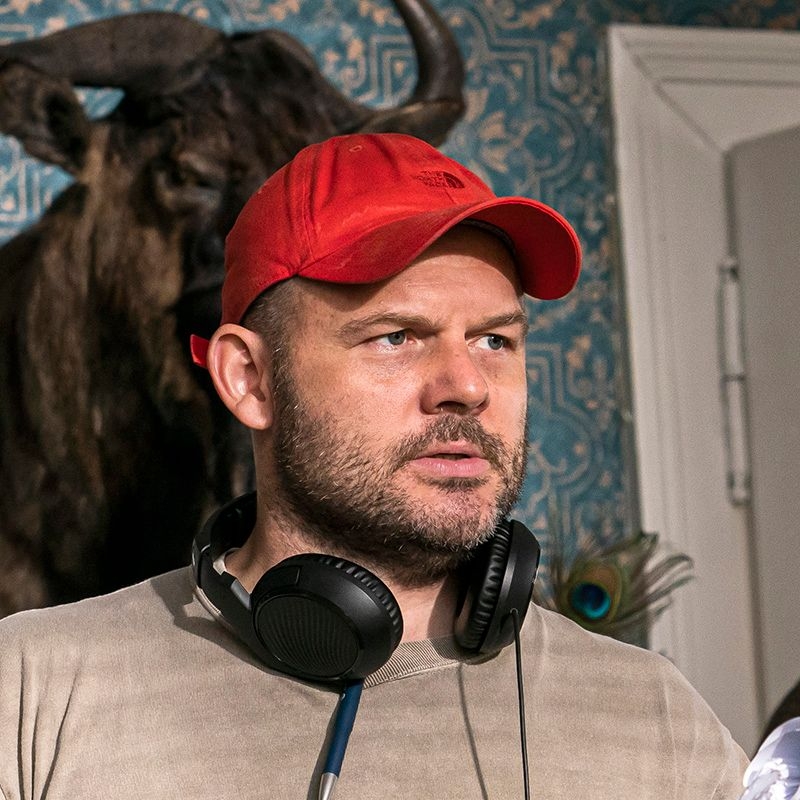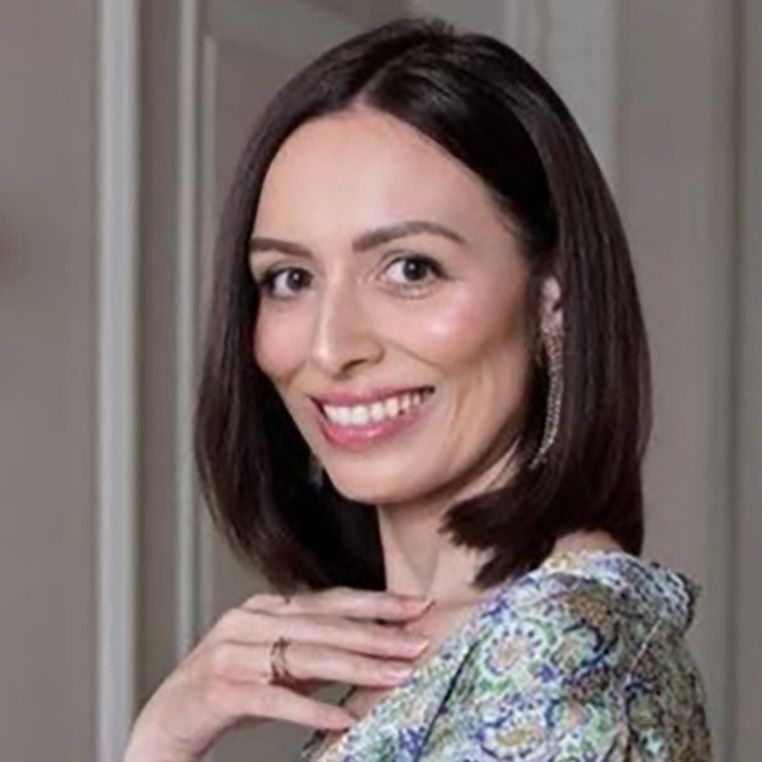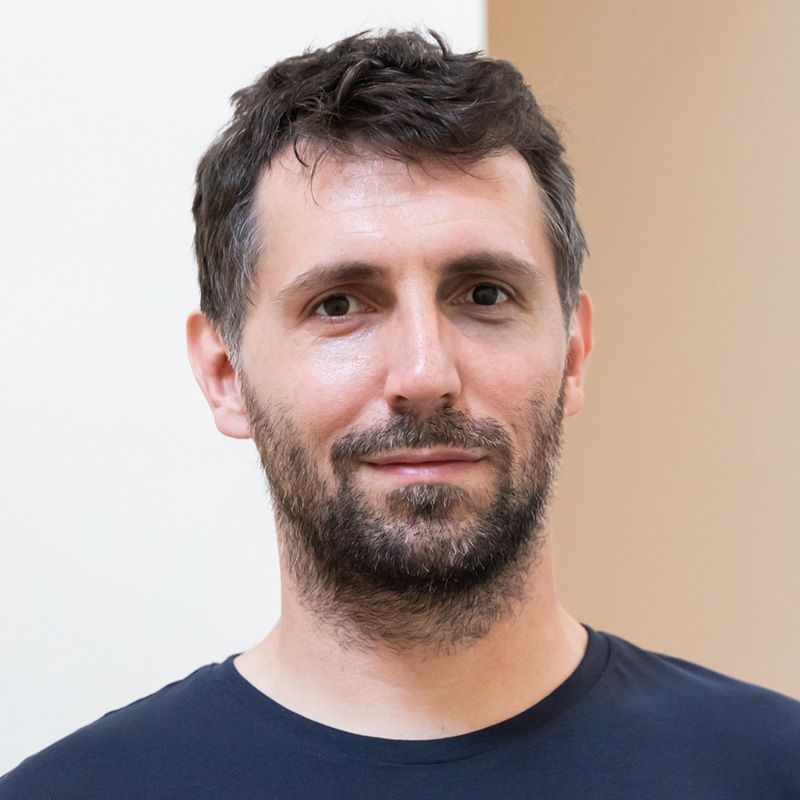TV Beats Co-Financing Market
FRONTWARDS
"Frontwards" follows Kamila, a homicide investigator who keeps encountering the same victim - Richard Weiss - though his identity changes with every case. As she alone remembers the truth, Kamila is drawn into a collision between crime-solving and her own fractured memory, uncovering a story of family, loss, and the shifting nature of reality.
Kamila, a rational homicide investigator, keeps encountering the corpse of the same man - Richard Weiss - whose identity changes with each case. As she unravels the mystery, she uncovers hidden connections to her family, her city's shifting landscape, and her own fragile memory. What begins as a crime procedural transforms into a deeply personal journey through family trauma, subconscious fears, and the disintegration of reality itself.
The central theme of "Frontwards" is memory. Kamila is the only one who realises that all the victims are the same man – Richard – making her both detective and unreliable witness. The series explores how memory is not an objective record but a story constantly “edited” by emotion, creating tension between the factual logic of investigation and the subjective truth of human experience. Kamila herself becomes the battlefield of this contradiction, where crime-solving collides with emotional memory.
At its core, "Frontwards" is the story of a mother and son – struggling against time, memory, and loss to find one final moment of clarity together.
Director's note
"Frontwards" is conceived as an unsettling weekly journey into bizarre homicides investigated by an unreliable heroine. Set in a Central European “any-city” at the turn of the millennium, the backdrop itself is in transition: crumbling communist-era relics give way to gleaming skyscrapers, petty crime mutates into graphic brutality, analogue culture collides with the digital age, and even the weather feels unstable – an accomplice or an enemy to the investigation.
This is not a six-hour movie nor a one-off “event,” but a six-step procedural into the fractured mind of our protagonist, Kamila. The series pairs suspense, mystery, and dark humour with a deeper emotional journey: learning to understand – and love again – an estranged mother figure. At its heart, "Frontwards" is not an “amnesia story” or a “dementia story,” but a loving memory story. Memory here is both weapon and wound, shaping identity in an unstable world. Audiovisual textures – grainy 35mm, VHS ghosts, low-res analogue glitches – are not nostalgic flourishes but vital narrative clues, woven into the fabric of Kamila’s unravelling reality. Each episode stands alone as a gripping procedural, yet together they reveal a larger pattern: a meditation on memory, family, and self-worth, told through the lens of a heroine whose reliability is always in question.
Producer's note
We are honored to present Frontwards, a six-part high-concept drama created by Lukas Sigmund. For our Central European region, this project is truly unique: it embraces the familiar appeal of the international crime procedural while pushing beyond its boundaries, transforming the “Friday night crime” format into an ambitious, emotional, and genre-bending story.
At once local and global, Frontwards is rooted in the cultural and visual identity of Central Europe at the turn of the millennium, yet it explores universal themes—memory, family, identity, and loss. At its heart, it is the intimate story of a mother and son, refracted through unreliable memory and a city in transformation.
The series is conceived as both: a weekly procedural that works for terrestrial broadcasters, and a binge-watching puzzle that reveals its full force when seen in one sweep. This duality—between episodic suspense and overarching narrative—makes Frontwards equally at home on Sunday night television and on streaming platforms worldwide.
The project has already attracted the attention of Slovak Audiovisual Fund, MEDIA Creative Europe, and Czech TV (as main broadcaster and financing partner). We view Frontwards as a rare opportunity: a regionally distinctive yet universally resonant drama with international potential, bringing together crime, psychological mystery, and an emotional core that speaks to audiences everywhere.
Screenwiter's note
"Frontwards" tells the story of Kamila, a homicide detective in a 1990s-inspired Central European metropolis. Persistent and stubborn, Kamila needs to believe she has her life under control. Solving crimes in a city of crumbling brownfields, unfinished buildings, and cramped flats is, for her, a way of bringing order to chaos. At the same time, Kamila is a single mother to a teenager she affectionately calls Bubble. Every day, she is torn between her demanding job and her fragile family life, afraid of failing at one or both. Bubble, caught in the throes of puberty and alienation, seems to drift further away – his Gen-X angst masking something much more profound.
Into this delicate balance enters Richard: a murder victim. At first, Kamila approaches his case with professional resolve, supported by her eccentric colleague Peter. But when Richard’s corpse appears again in another part of the city – different identity, same man – Kamila realises she is the only one who remembers solving his murder. There are no traces in the archives, no evidence of her past work. Each new case begins as if the previous one never existed. With every episode, Kamila slips into another layer of reality, haunted by Richard’s repeating death and consumed by the question: Who is he, and why does he return again and again?
While her professional life collapses under this strange pattern, Kamila’s personal world also begins to fracture. With each new layer, Bubble changes too – unaware of the shifting realities, but deeply affected by his mother’s unravelling. Their bond erodes; he feels her anxiety but does not understand it, withdrawing further as she loses her grip on the world.
For me, "Frontwards" is more than just a procedural mystery. It is a deeply personal story about memory, motherhood, and fear of loss. It reflects my own obsessions: how fragile memory can be, how family ties are tested by time and circumstance, and how reality can feel unstable when our closest bonds begin to fracture. At its heart, "Frontwards" is not about amnesia or dementia – it is about loving memory, and the desperate fight to hold on to what defines us.
Subjects:
first love, fatherhood, friendship, environment, familial relationships, nature

Michal Kolláris a director, producer, and screenwriter, born on 4 April 1978 in Bratislava, then Czechoslovakia (now Slovakia). He is the founder of Fog’n’Desire Films, established in Prague in 2006, and the co-founder of KFS Production, launched in Slovakia in 2017. Michal is a member of ACE Producers and EAVE, and was selected as a Producer on the Move by European Film Promotion.
Villa Lucia, 2023, https://www.imdb.com/title/tt27131692/ Ultimatum, 2022, https://www.imdb.com/title/tt18950140/ The Red Captain, 2016, https://www.imdb.com/title/tt3975072/

Studied English and French languages along with their culture and history. Has been involved with film and television since 2012. Worked for the company Tigrion, Fog’n’Desire Films, and Sokol Kollár. She is an active Slovak producer of the films Červený pavúk (The Red Sider), Červený kapitán and Domácí péče (Home Care) and the co-producer of the film Chvilky (Moments). Has been a producer and executive of the KFS production company since 2017.

Lukáš Sigmund was born in 1983 in Bratislava. DFFB Serial Eyes and EWC alumni, vice president of Slovak Screenwriters Association ASSA. In 2008 he Graduated from the Academy of Performing Arts Bratislava, receiving a Master's degree in Screenwriting and Dramaturgy. He co-wrote the screenplay for the comedy feature film Villa Lucia (2023) and co-wrote miniseries Ultimatum (2022). Currently. he is working on true-crime miniseries NEUER as well as his original miniseries Frontwards.

